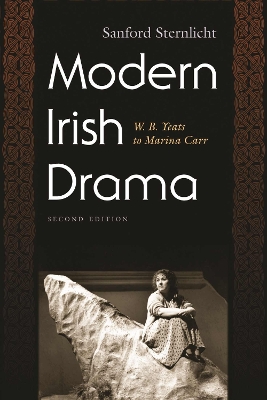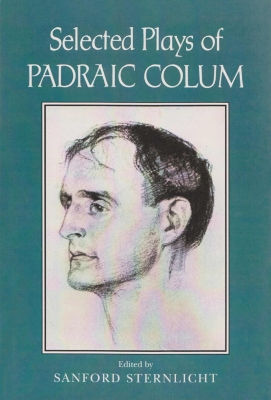Irish Studies
2 total works
Modern Irish Drama: W. B. Yeats to Marina Carr presents a thorough the introduction to recent history of one of the greatest dramatic and theatrical traditions in Western culture. Originally published in 1988, this updated edition provides extensive new material, charting the path of modern and contemporary Irish drama from its roots in the Celtic Revival to its flowering in world theater. The lives and careers of more than fifty modern Irish playwrights are discussed along with summaries of their major plays and recommendations for further reading. Most significantly, Sternlicht treats the major themes of modern Irish drama: the struggle for independence; the suffering caused by extreme poverty and the resulting emigration; the decline of Anglo-Irish ascen dency; the epic longing for and love of the land; the falling power of the clergy; generational conflicts; problems of the post-colonial transition; and the impact of feminism on a patriarchal society. Sternilicht brings well-deserved attention to such playwriters as Conor McPherson, Robert Massey, Ursala Rani Sarma, and Sean McLoughlin, among others. Including a selected bibliography and filmography, Modern Irish Drama is an indispensible resource for students of drama studies and production companies alike.
At the age of twenty-three, Padraic Colum (1881-1972) was one of the founding fathers of the Abbey Theatre. His contribution to the development of Irish drama continued until his voluntary exile to America in 1914. His play, Broken Soil (1903), was the first commercial success at the Abbey, and it established the long-lived tradition of the peasant play on the Irish stage. This collection comprises the three major forms of his dramatic art: The Land (1905); Betrayal (1912); and two of his five Noh plays (a five-play cycle containing poetry and prose following the Yeats and Japanese Model), Glendalough (based on the career of Charles Stewart Parnell), and Monasterboice (based on the early life of Colum’s lifelong friend, James Joyce).

